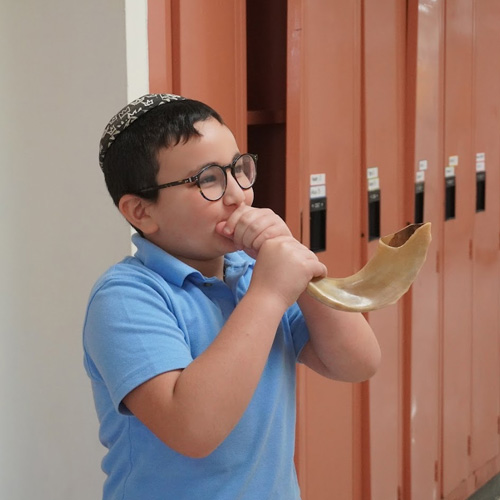French Program
The French Department offers a French-first language program for all students. Right at the start of Elementary School, our students are taught communication skills through the acquisition of vocabulary and syntax. To make learning more meaningful, we favour the use of pedagogical approaches that are most likely to pique our students’ curiosity and keep them motivated.
In addition to communication skills, our students are taught a variety of disciplines in French that complement their learning; students able to communicate in French are better able to understand content from specific subjects in that language. In turn, knowledge of various subjects facilitates the acquisition of communication skills.
Hebrew Academy believes in the development of every aspect of a child’s personality. We provide learning and evaluation scenarios in which students must not only engage in a number of cognitive activities, but also practice such traits and behaviours as open-mindedness, intellectual curiosity and effort. This approach is used to teach subjects including Geography, History and Citizenship as well as Ethics and Religious Culture.
Our Science classes are a special place where students are provided with opportunities to explore, discover and ask questions.
Another method we use to teach French is through art education, using both visual and dramatic arts. We strongly believe that exposure to artistic and literary works enhances students’ lexical knowledge and improves the quality of their expression.
Furthermore, early exposure to art allows students to develop a strong culture and position themselves as creators and consumers of cultural goods. We proudly share what our students have learned in art classes by inviting the entire school community to art exhibits and theatrical productions.
Learning another language expands cultural borders. Our students are exposed to other cultural markers and in turn discover the similarities and differences between their culture and those of others. In addition, they develop an even better understanding of the characteristics of their own cultural identities.

